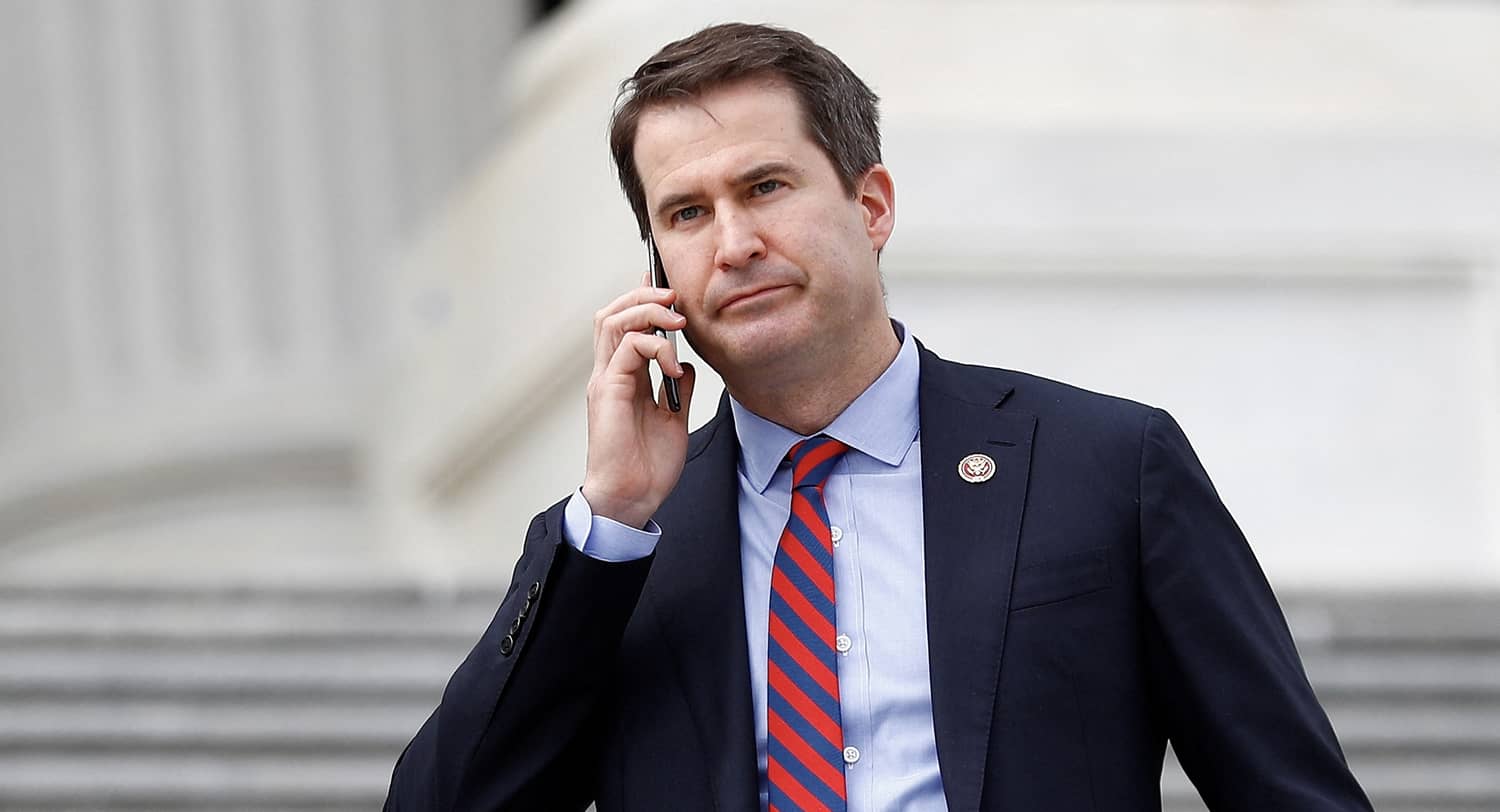Congressman Seth Moulton is one of the most highly respected members of the House Armed Services Committee. The Massachusetts Democrat and retired Marine has a record of working both sides of the aisle. He and Jim Banks, a conservative Republican from Indiana, co-chaired the Future of Defense Task Force; their 2020 report garnered considerable attention and praise from national security circles.
Moulton is not averse to taking nuanced positions that can get him into trouble. In particular, he created a stir saying he would not want his daughters “getting run over [by] formerly male athletes.” His campaign manager resigned and Massachusetts Governor Maura Healey criticized him. But Moulton’s position was actually quite nuanced. While he stood by his statements regarding transgender athletes, he made it clear that he was opposed to any restrictions on their civil rights. In that regard he was in line with the views of a majority of Americans.
On October 15, Moulton announced he would challenge incumbent 80-year-old Senator Edward Markey in the Massachusetts Democratic senatorial primary in 2026. Moulton points out that he was not even born when Markey was first elected to the Senate in 1976. The Congressman presents himself as an exemplar of the younger generation of Democrats who seek to replace the party’s gerontocratic leadership.
Moulton announced on October 16 that he will return any donations from AIPAC in support of his campaign. He asserted that he is “a friend of Israel, but not of its current government, and AIPAC’s mission today is to back that government.” AIPAC spokesman Marshall Wittman responded that Moulton “is abandoning his friends to grab a headline, capitulating to the extremes rather than standing on conviction.” Wittman added that Moulton has sought AIPAC endorsement in the past and his position “is a clear message to millions of pro-Israel Democrats nationwide, that he rejects their support and will not stand with them.”
Yet Moulton may well be reflecting the views of the majority of Jewish Democrats. A September 2025 Ipsos poll showed that 70 per cent disapproved of the Israeli operation in Gaza; twenty months earlier, in the wake of the October 7 attacks, 53 per cent supported Israel’s response to Hamas’ atrocities. Moreover, a Washington Post poll in October 2025 indicated that a majority of American Jews, at least 70 per cent of whom reliably vote Democratic, believe that Israel is guilty of war crimes. Moulton’s turnaround is thus very much in line with that of Jewish Democrats, particularly younger ones.
Jewish Americans are especially critical of Prime Minister Benjamin Netanyahu. Indeed, a May 2025 national survey of Jewish voters found that 61 per cent had an unfavorable view of Netanyahu. Congressman Mikie Sherrill, a Democratic moderate and strong supporter of Israel, whose New Jersey district includes a sizable Jewish population and is running for the state’s governorship, reflects in the bluntest terms Democratic unease with the prime minister: “Netanyahu has been a really bad actor in this space, the starvation of people in Gaza is unacceptable.”
When I asked Moulton about his refusal to take AIPAC funds, he told me that he had appealed to AIPAC’s leadership to alter its lock-step support for the Israeli government. When AIPAC refused, he simply decided he did not want to identify with a group that supported the Netanyahu government.
In fact, AIPAC has little political wriggle room with respect to its relationship with the Israeli government. Its mission is to support the elected government, regardless of its composition. For nearly 20 of the past 30 years, the leader of that government has been Benjamin Netanyahu.
Netanyahu has never been popular with Democrats. In 2011 he especially angered the rank and file when he lectured Barack Obama in the Oval Office about the Iranian nuclear threat. Moreover, since December 2022 he has depended on the participation of extreme right-wing and ultra-Orthodox parties, both of whom curry little favor with most American Jews, who are overwhelmingly liberal and non-Orthodox.
To make matters worse, it became clear years ago that Netanyahu had essentially written off the Democratic party. And some of his most extreme ministers have also stressed, as a deputy foreign minister (now an ambassador) once told me, that the government had no need to rely on non-Orthodox Jews. All it needed, she said, was to preserve its core base of Orthodox Jews and Christian Evangelicals.
This leaves AIPAC, despite serious attempts to be bipartisan, in a terrible bind. Once there appeared to some daylight between AIPAC and the Israeli government. Yitzhak Rabin had little time for the organization, as he told me, because he felt it sometimes usurped his government’s role in presenting Israel’s position to Washington and especially to the Congress. But that was many decades ago, when Netanyahu was a rising young politician.
AIPAC remains Israel’s most powerful advocate in Washington and indeed throughout the United States. It is not only that AIPAC has been amazingly effective in garnering financial support for Israel. It also has been the author of countless imaginative proposals that have strengthened American-Israeli ties to the benefit of both countries .
AIPAC has recognized the challenge that it faces with Democrats in general and Jewish Democrats in particular. It has undertaken numerous outreach efforts and supports many Democratic politicians. But Moulton’s rejection of AIPAC funding is unlikely to be the last time a promising young Democrat distances his or herself from Israel.
At some point, the Democrats will retake the Congress, and the White House. When that happens, unless AIPAC modifies its long-standing policy, it may find itself shut out of Washington’s corridors of power. That would be nothing less than a disaster for Israel. Perhaps the time has come for Israel’s most powerful advocate to back away from its unconditional support for the government and instead emphasize the need to support the State of Israel itself.

